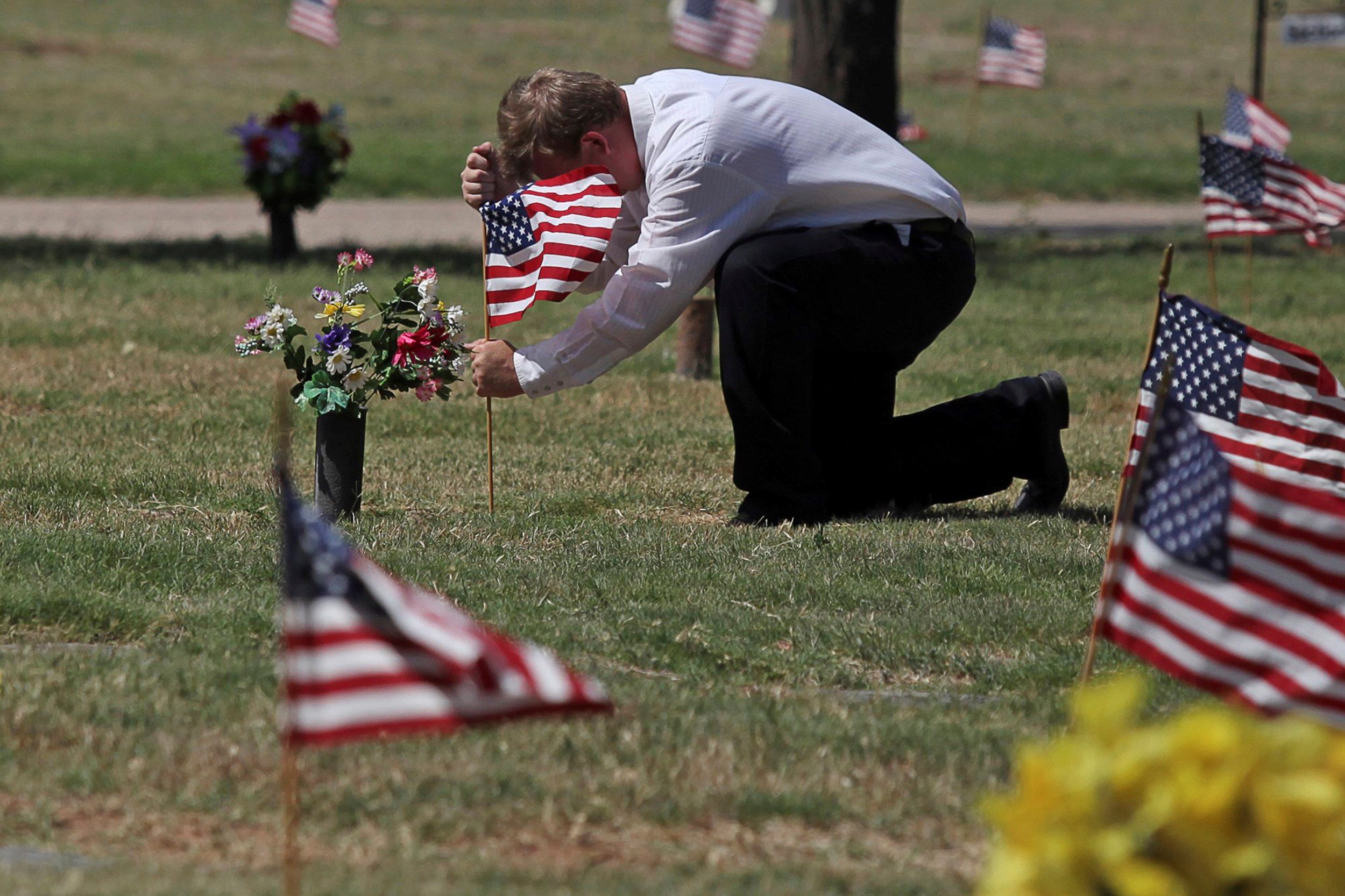Veterans suicide rate may be double federal estimates: Study
According to a new analysis, the suicide rate among veterans may be more than double what federal officials estimate annually.
-

James Kohr places an American flag at a veteran's grave at Sunset Memorial Gardens in Odessa, Texas, on May 28. (AP)
The suicide rate among veterans may be more than double what federal officials estimate annually due to undercounting of drug overdose deaths and mistakes in service record maintenance, according to a new analysis released on Saturday.
In a joint investigation with the University of Alabama and Duke University, America's Warrior Partnership officials looked into census mortality data from 2014 to 2018 for eight states and discovered thousands of suspected or confirmed suicide instances that weren't taken into account by federal calculations.
There are around 17 veterans who commit themselves every day. If those figures hold true for the other states, the official estimate would rise to 44 veterans per day, according to the Department of Veterans Affairs' official estimate from last year.
Read next: US Troops Suicide Rate Spiked in 2020
The aim of the report, according to Jim Lorraine, president of AWP and a former Air Force officer who now works in the medical field, is not to criticize state and federal officials for their failings but rather to highlight instances where death records are inaccurate or overlooked in an effort to find more solutions to the suicide problem.
“These are all preventable deaths,” he said. “The number is less important than the methodology of tracking them and making sure we have an accurate count … that can lead us to prevention steps.”
Suicide rates among #US troops rose by 15% in 2020, according to a #Pentagon report that the Defense Secretary described as “troubling". pic.twitter.com/OCBfozm465
— Al Mayadeen English (@MayadeenEnglish) October 6, 2021
Drug overdoses account for the majority of uncounted deaths (about 60% of the instances), according to the report. Lorraine noted that despite evidence suggesting the fatalities should be categorized as suicides, many drug deaths in the places his study looked at were classified as accidents or deaths of unclear cause.
“Whether it’s an accident or a suicide doesn’t really matter. The point is these are preventable,” he said. “So that means we can address them.”
The military background of deceased people was frequently misreported by coroners or family members, according to research. Most frequently, these errors result in an undercount of veteran fatalities.
The group is advocating for greater federal tools to access Defense Department records in an effort to verify a person's veteran status in order to address that problem.
Read next: US to send psychiatrists to combat Alaska military suicides: Army
State and municipal governments will need to step up their public health initiatives to address the overdose deaths, Lorraine added.
“We can build prevention strategies with the data that is currently available,” he said. “It just needs to be merged and analyzed and then used."
“In one state, overdoses may be a higher concern than firearms. In another, it might be firearms first. They need to look at the right mechanism for the problems they are facing.”

 3 Min Read
3 Min Read








